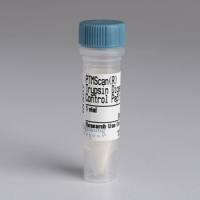Autophagy is a cellular homeostasis pathway used to sustain cellular anabolic needs during times of nutrient or energy deprivation. Autophagosomes sequester cytoplasmic constituents, including macromolecules such as long-lived proteins. Upon fusion of autophagosomes with lysosomes, the engulfed cargo is degraded. The proteolysis of longlived proteins by macroautophagy is a standard, specific measure of autophagic degradation and represents an end-point assay for the pathway. The assay is based on a pulse-chase approach, whereby cellular proteins are radiolabeled by an isotopically marked amino acid, the short-lived, rapidly turned over, proteins are allowed to be degraded during a long chase period, and then the remaining, stable radiolabeled proteins are subjected to autophagic degradation. The classical application of this method has been in hepatocytes, but the recent growth of interest in autophagy has necessitated adaptation of this method in nonliver cells. Here we describe a protocol to quantify autophagic degradation of longlived proteins in macrophages. This chapter details the method of analyzing autophagic proteolysis in RAW264.7 mouse macrophages.






